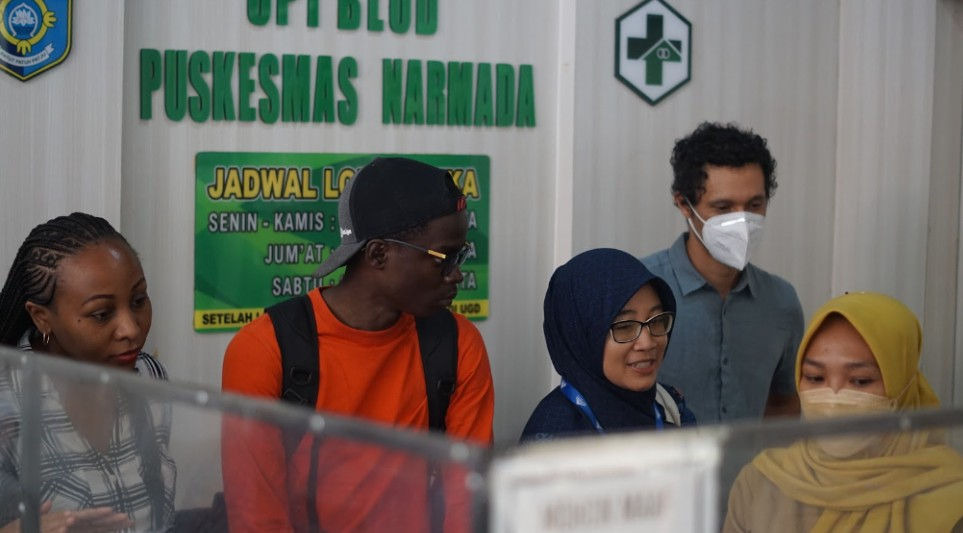Workshop on Catalyzing Integrated Primary Health Services with FHIR
- Admin
- Oct 15, 2023
- 3 min read
Updated: Sep 26, 2024

In an effort to provide more efficient and integrated primary health services, a workshop on "Catalyzing Integrated Primary Health Care on FHIR" has been conducted. This workshop aims to accelerate the implementation of team-based care on FHIR (Fast Healthcare Interoperability Resources) as a standard for interoperability or data exchange.
What is FHIR (Fast Healthcare Interoperability Resources)?
FHIR (Fast Healthcare Interoperability Resources) is a health data exchange standard. With FHIR, electronic health data exchange can be done quickly and more efficiently, and allows for better interoperability between various health systems. This opens the door to the creation of healthcare services that focus on the needs of the client or patient, by ensuring that health data can be accessed and updated in real-time by the care team.
The main focus of this program is to address gaps in health services by ensuring that health information can be transferred between information systems in primary care and in the community. In this way, health practitioners can work together more effectively, resulting in more comprehensive, sustainable and high quality of care.

Who are the participants involved in this workshop?
This workshop was attended by the SID team, ONA, and involved related partners. The next time the workshop will be carried out further with regional and national partners to accelerate implementation and scale up in the districts where SID is working closely with.
Team-based care refers to an approach in the health sector where health care services are delivered by a group of frontline workers who collaborate and work together as a team to complete a care plan of clients or individuals who need care either at Posyandu (village health posts), Pustu Prima (auxiliary health center) , Puskesmas (primary health center) and referral facilities.
This team consists of medical and non-medical personnel, such as doctors, nurses, nutritionists, cadres who have roles and responsibilities that can overlap and complement each other in providing a complete care for clients/community members of their expertise.

Team-based care aims to provide a coordinated team who work together to complete care plans of clients wherein the data from multiple teams can communicate with each other so that the real time care gaps can be closed immediately by the team. To close these care gaps, each team can play a role following their respective skills and competencies.
This also helps to inform decisions, and care plans can be tailored to meet individual needs with a high quality of service. This approach also optimizes prevention and promotion rather than curative and rehabilitative approaches. This is very much in line with the primary health care revolution, which was first declared in 1978 through the Declaration of Alma Ata. Primary health care currently requires a more advanced and technology-based approach to catalyze its transformation (Hone et al., 2018).

Why is a workshop like this necessary?
The aim of this workshop is for future development and deployment, with the following steps include:
1. Discuss with partners about platform/system specifications that can be implemented as team-based care on FHIR. This is an important step to ensure that the appropriate infrastructure is in place to support this transformation.
2. Increase capacity and share knowledge among participants. This workshop is a forum for professionals, researchers, and stakeholders to learn more about FHIR and how it is implemented, to create impact.
3. Develop next steps to assess the impact of team-based care on the community’s health improvement. This workshop is not only about theory, but also about real actions that can provide direct benefits to society through better and more integrated health services.
The workshop "Catalyzing Integrated Primary Health Care on FHIR," is a step for a leap forward in program implementation, to have an impact on society and be ready for scaling up to all primary and referral services in Indonesia.
Activity Documentation:



REFERENCES:
Hone, T., Macinko, J., & Millett, C. (2018). Revisiting Alma-Ata: what is the role of primary
health care in achieving the Sustainable Development Goals? The Lancet, 392(10156),
1461–1472. https://doi.org/10.1016/s0140-6736(18)31829-4
HL7FHIR: Summary of FHIR. source on https://www.hl7.org/fhir/summary.html
World Health Organization (WHO). Declaration of Alma-Ata. (n.d.).
https://www.who.int/teams/social-determinants-of-health/declaration-of-alma-ata


Comments